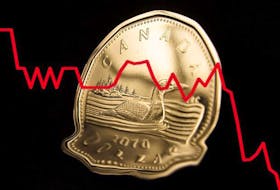Q: Both of us lost our jobs at the start of the pandemic and we had to defer every payment we could. Our savings didn’t last very long because we have expensive medical costs with our son, and our extended benefits didn’t continue while we were laid off. My husband is back to work almost full time but because he’s got a sales job and over half of his paycheque is usually based on commissions, it will be a while before his cheques are back to normal. For me, it looks like I’ll have to find a different job because I work for a local store that might not survive. We’re not sure if we’ll have the money to make our regular payments once the deferrals end. What can we do? ~Bailey
A: When the COVID-19 pandemic hit and millions lost their source of income, Canada faced its biggest job losses since the 1980s. It was also the first time that many Canadians needed to avail themselves of hardship measures offered by their creditors. Widespread measures were made available within a short period of time, and with the uncertainty of an evolving pandemic, many needed to utilize all the help they could get. And thankfully programs rolled out across the country to help individuals and families get through this difficult time.
However, after the initial shock of needing to navigate available options and qualifying for those that one could get, there was much less focus on what would happen afterwards when programs ended and payments came due. The resumption of previously deferred payments, unfortunately, could become our next personal financial crisis.
To help regain financial stability, manage the resumption of your regular payments carefully. Here are things to keep in mind:
Determine where you stand
It’s important to know what you’ll be up against when the end of your deferral period comes. Depending on the bill or debt you deferred, you may have needed to sign a deferral agreement or you might simply have received a letter or email to confirm changes you made over the phone with a customer service representative. Start by collecting these notices or agreements. You will need to review them as you make your plan for how best to get back on track with all of your payments.
Also determine where your budget stands. For many there is every chance that payments might be set to resume before you’re able to resume your former level of income, so an outline of your primary and secondary expenses will help you develop your plan.
How to Pay Debts and Bills Off Quickly
Check the terms of any deferral agreements
There will be differences between creditors and service providers around how exactly your payments were deferred. Review your deferral agreements and keep note of any terms or conditions that will matter sooner than later. Also make a note of the date when your regular payments are expected to resume.
For instance, if you deferred mortgage payments, check your agreement to see if the payments you skipped will be added to the end of your mortgage term or if you will need to pay at least a portion, e.g., the interest, at the end of your deferral period. If your secured line of credit allowed for interest-only payments for a specified period of time, will you need to catch up any principal payments? This could be the case if your balance owing is now over the limit.
With utilities and credit card companies, some service providers and creditors will offer payment plans for the payments you skipped. These will be amounts added to your regular payments to catch up the deferred payments. For example, if you were allowed to skip payments totaling $600, you may be required to add $100 to each of your next six monthly payments.
For credit cards specifically, many creditors were offering a reduced interest rate on balances owing on your credit cards, with bill credits being applied after the deferral period ends. If this is part of your terms and conditions, check your statements carefully for the credits and interest rate changes.
If you can’t find your deferral agreements or don’t remember what you agreed to, contact the provider or creditor and review your terms with them. It can also be worthwhile to check the company’s website to see if you’re able to get more favourable terms now than what you were offered originally. Policies have been changing quickly, so you won’t know until you ask.
Solutions for Credit and Debt Problems
What to do if you can’t resume regular payments yet
If you know that you won’t be able to resume full, regular payments at the time you’re expected to, you will need to contact your creditors or service providers to see what options they can offer around continuing your deferral period. Depending on the type of work you do, it may still be months before your income is stable again. Creditors and service providers will only be aware of your situation if you inform them, and some will have continued hardship or deferral options for you to consider as you decide on your next steps.
Communicating with creditors effectively is important. Simply assuming that your deferral period will continue could mean that you are no longer in line with the terms and conditions of your agreement. This might mean that it collapses and all of the arrears are due and payable immediately. Or worse, skipped payments that weren’t officially approved by the creditor or service provider could mean that you’re ineligible for further relief programs due to a poor payment history.
Coming to a point where a deferral agreement is withdrawn could have a negative consequence on your credit rating . Creditors made special allowances around the deferred payments, not reporting them as late or missing to the credit reporting companies. If your agreement is withdrawn, this special consideration could also become null and void.
Look ahead at any large bills
If you have any large bills coming due within the next few months, contact whomever you owe the money to well before the payment is required. Insurance, income tax, student loans, tuition, even property tax adjustments or semi-annual municipal utility bills are all large bills that may qualify for deferral or an individualized payment arrangement.
How to Avoid a Big Property Tax Bill
Restarting regular payments
Before you restart regular payments, ensure that you know what will be automatically withdrawn from your bank account and which payments you need to make manually. Outline a paycheque plan so that you know when you’ll receive your income, what must be paid when, how it will be paid, and how much each payment will be. It can even help to set electronic calendar reminders that pop up a day or two before a payment is due. Switch automatic payment to manual ones if you’re worried about having enough money in your bank account at the right times. This will help avoid expensive NSF (non-sufficient funds) charges.
Interactive Budgeting Calculator
If outlining your payments leaves you short, review your budget outline to see if there are any changes you can make. For instance, if you went back to work and the company resumed normal payroll operations, you might be contributing to an RRSP or pension again as well. While saving is always a good idea, when you’ve got essential bills to take care of right away, temporarily suspending contributions to a retirement savings plan will help you get back on track that much sooner.
If you can almost manage your full, regular payments, don’t be afraid to reach out to your creditors and service providers to ask for some accommodations. Allowing you to make 75 per cent of your payment, for example, right now can go a long way to helping you regain financial stability so that you can resume full payments more quickly. When reaching out to ask for a little extra help, have pertinent details about your situation handy. This will ensure that you don’t commit to more than you can afford right now.
The bottom line on resuming payments after a deferral period ends
There was initially some misunderstanding about what a payment deferral entailed. This isn’t surprising because the vast majority of Canadians make their payments each month; deferrals aren’t the norm. But almost nothing about the last few months has been normal, and the varied deferral policies from one creditor and company to the next only complicated matters for those deferring several payments. There are, however, also debt relief options in Canada if you find that no matter how you crunch the numbers, your budget simply doesn’t allow for you to resume regular payments. If you’re worried about how you’ll ever get back on track financially, reach out to a non-profit credit counselling organization in your area for information and guidance to ease your stress and worries.
Related reading:
Little-Known Debt Relief Options in Canada
Debt Repayment Mistakes That Keep You In the Red
Unlocking Locked-In RRSP and Pension Funds
Scott Hannah is president of the Credit Counselling Society, a non-profit organization. For more information about managing your money or debt, contact Scott by email , check nomoredebts.org or call 1-888-527-8999.
Copyright Postmedia Network Inc., 2020








